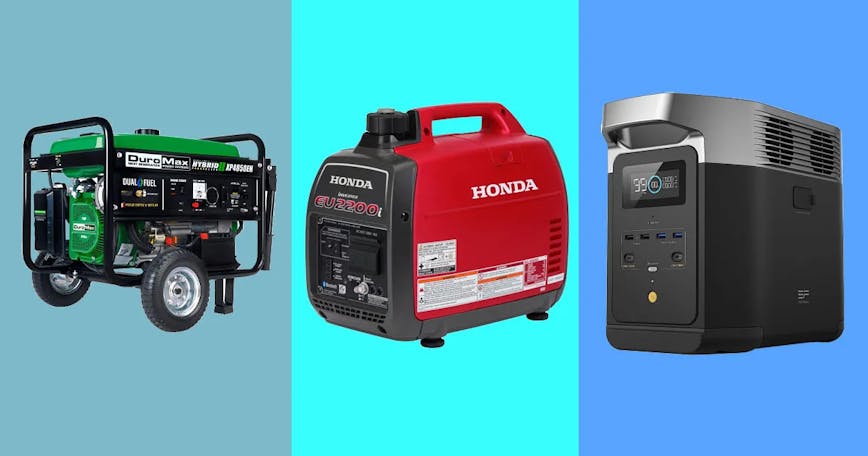
The Ultimate Guide to Generators: How They Work and Why You Need One
In today’s fast-paced world, where electricity powers everything from our homes to industries, having a reliable backup power source is essential. This is where generators come in. Whether it’s a natural disaster, a power outage, or an off-grid adventure, generators can save the day. In this guide, we’ll dive into how generators work, the different types available, and how to choose the right one for your needs.
What is a Generator?
A generator is a machine that converts mechanical energy into electrical energy. This mechanical energy typically comes from a fuel source like gasoline, diesel, propane, or natural gas. When the generator runs, it produces electricity that can power your home, appliances, or other essential equipment when the main electrical grid fails.
How Do Generators Work?
Generators operate based on the principle of electromagnetic induction. Inside the generator, there’s a rotating part (rotor) and a stationary part (stator). When the rotor moves, it creates a magnetic field that induces a flow of electrons (electricity) in the stator's windings. This electrical current is then used to power devices connected to the generator.
Types of Generators
There are several types of generators, each suited for different purposes:
1. Portable Generators
Portable generators are small, mobile units perfect for temporary power needs. They run on gasoline or propane and can be used for outdoor activities like camping or to power essential appliances during a short-term outage.
Pros: Lightweight, affordable, easy to use.
Cons: Limited power output, requires regular refueling.
2. Standby Generators
Standby generators are permanent installations connected to your home or business. They automatically switch on during a power outage and can run on diesel, propane, or natural gas.
Pros: Reliable, automatic operation, powerful enough for entire homes.
Cons: Expensive, requires professional installation.
3. Inverter Generators
Inverter generators are a newer technology designed to be more efficient and quieter than traditional generators. They produce clean energy, making them safe for sensitive electronics like computers and TVs.
Pros: Quiet, fuel-efficient, safe for electronics.
Cons: More expensive than standard portable generators.
4. Industrial Generators
Industrial generators are large, heavy-duty units used in factories, hospitals, and data centers. They are designed to provide power to large-scale operations and often run on diesel or natural gas.
Pros: High power output, built for continuous use.
Cons: Expensive, requires significant space and maintenance.
Why You Need a Generator
There are many reasons why having a generator is a wise investment:
Emergency Backup: During a natural disaster, like hurricanes or snowstorms, power can be out for days. A generator ensures you have power for essential appliances like refrigerators, lights, and heating systems.
Business Continuity: If you run a business, a generator can keep your operations running smoothly even during blackouts, preventing loss of productivity and revenue.
Off-Grid Adventures: Generators are perfect for camping trips, RVs, or cabins in remote areas where there is no access to electricity.
Health and Safety: For those reliant on medical devices like oxygen machines, a generator can be a lifesaver during extended outages.
How to Choose the Right Generator
When selecting a generator, consider the following factors:
1. Power Needs
Determine what you need to power during an outage. A small portable generator may suffice for a few appliances, but larger homes or businesses will require a standby or industrial generator.
2. Fuel Type
Generators run on various fuels, including gasoline, diesel, propane, and natural gas. Consider availability, cost, and storage when choosing a fuel source.
3. Noise Level
If you’re concerned about noise, an inverter generator is your best bet. Standby generators are generally quieter than portable models.
4. Budget
Generators range in price from a few hundred dollars for portable models to several thousand for standby systems. Consider both the initial cost and long-term maintenance expenses.
Maintenance Tips for Generators
To ensure your generator is always ready when you need it, follow these maintenance tips:
Regular Testing: Run your generator once a month to ensure it’s functioning properly.
Change Oil: Like any engine, a generator needs regular oil changes. Refer to the manufacturer’s guide for intervals.
Check Fuel: For gas-powered models, ensure the fuel tank is full and free from contamination.
Inspect Cables and Connections: Make sure all wires and connections are intact and not corroded.
Final Thoughts
Generators are an essential tool for ensuring power continuity in the face of outages or off-grid needs. Whether you opt for a portable, standby, or industrial unit, having a generator can provide peace of mind and keep your life running smoothly during unexpected power disruptions. When choosing a generator, consider your power needs, fuel preference, and budget to find the perfect solution for your situation.